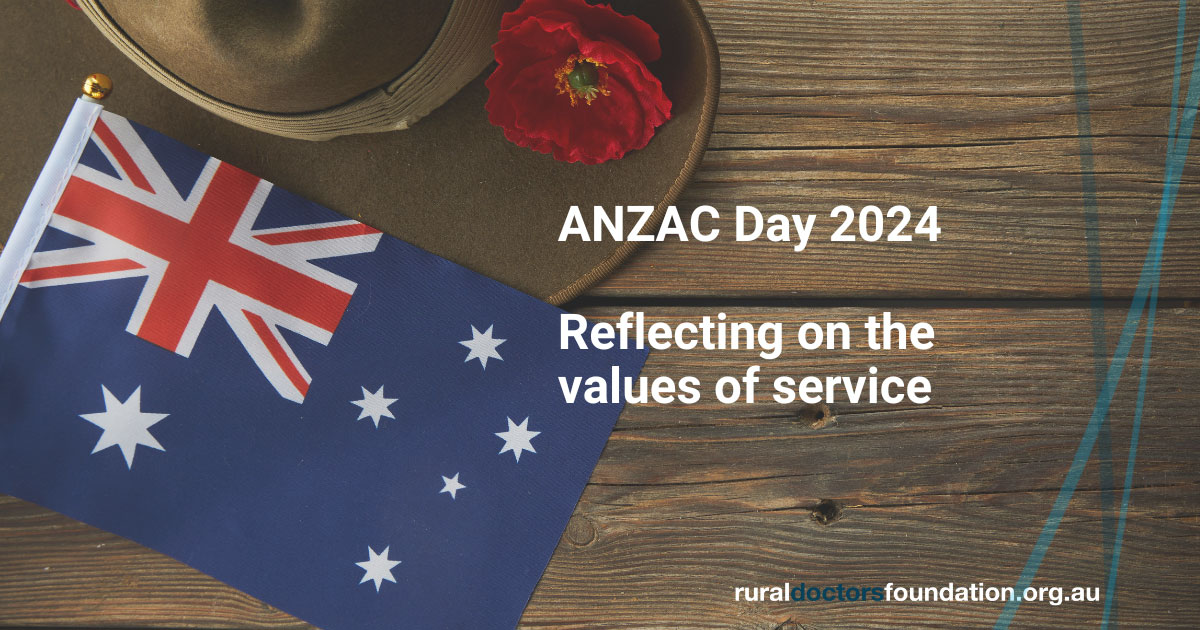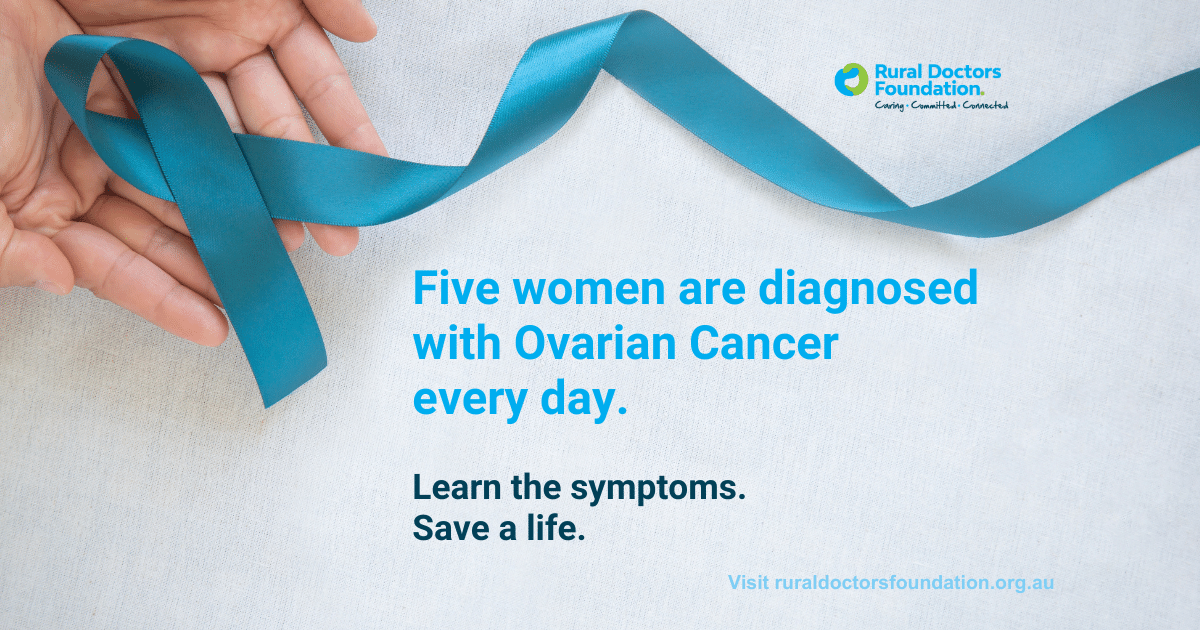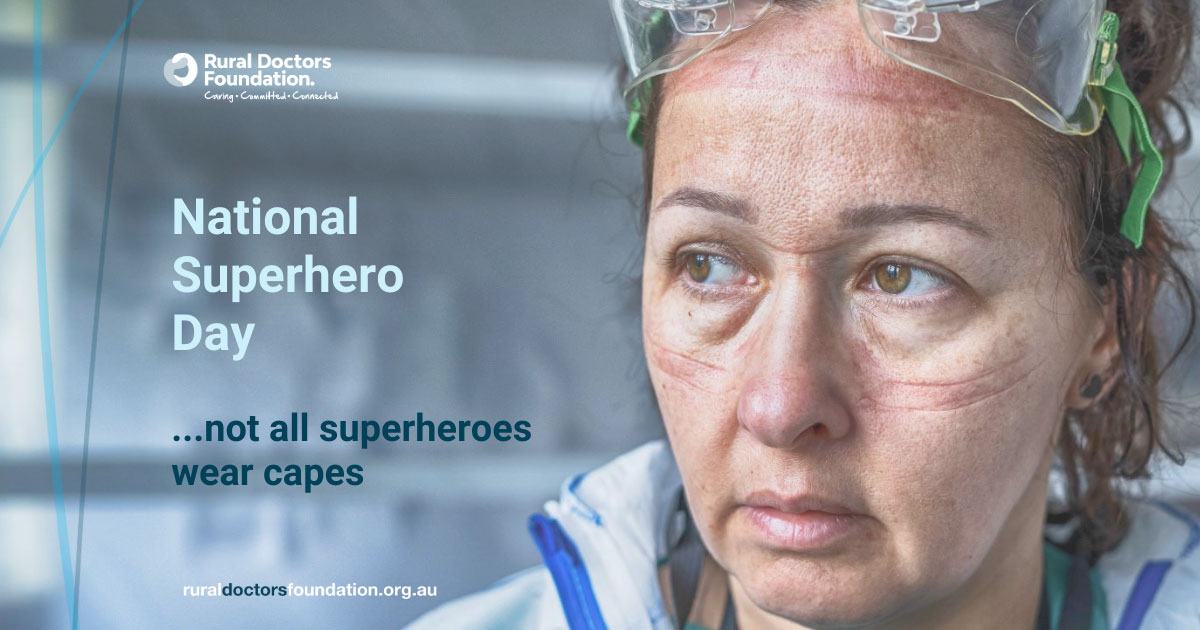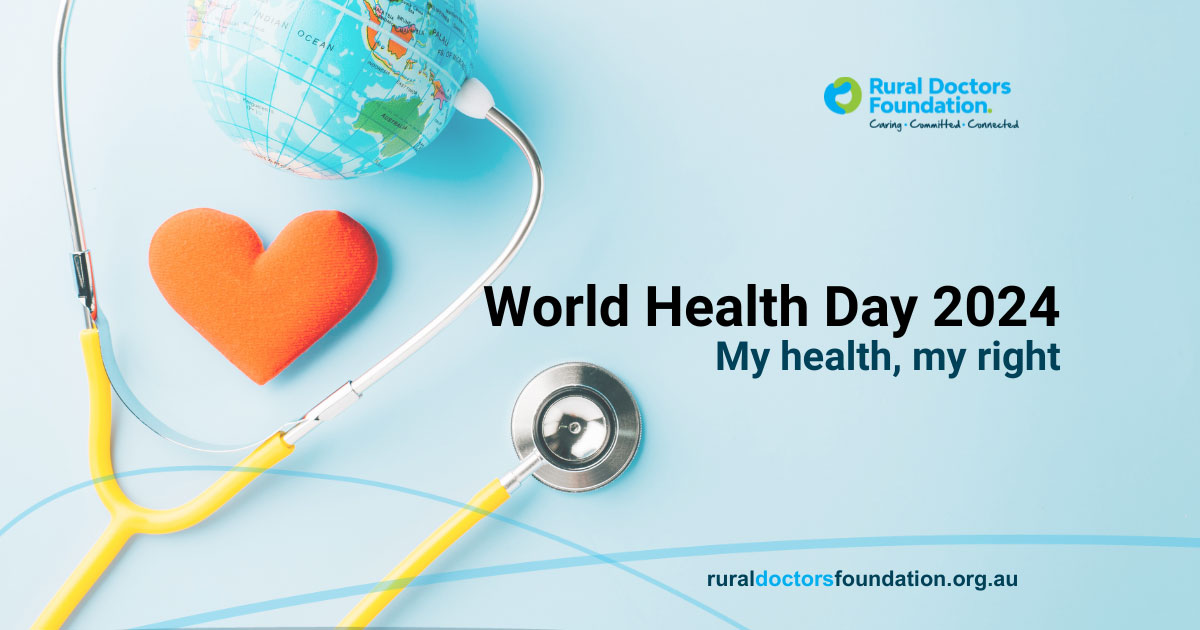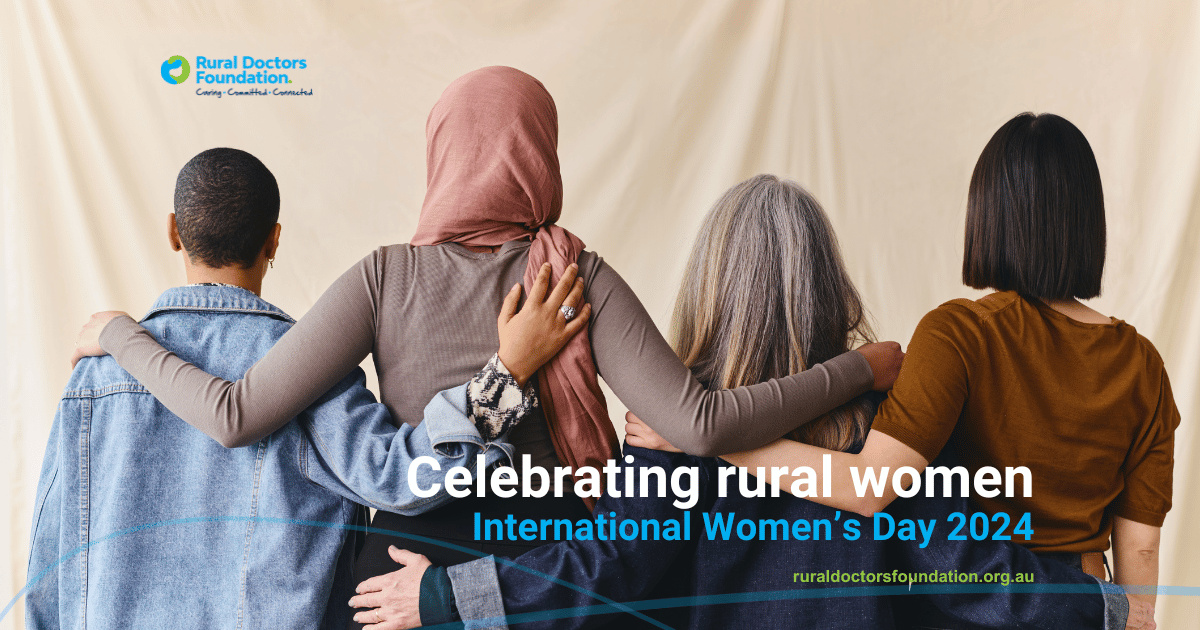This ANZAC Day, we are reminded of the dedication and sacrifice made by those who keep us safe, and we thank those who have used their medical skills to save lives.
One such veteran is Dr Michael Clements, a rural doctor who specialises in supporting ex-service personnel and families of serving members.
He has had a fulfilling career in service to others, from his time in the Royal Australian Air Force (RAAF) all the way through to his current commitments as a GP in Townsville, as well as Vice President and Rural Chair of The Royal Australian College of General Practitioners (RACGP) Board.
To better reflect on the true spirit of ANZAC Day and what it means to serve, we asked Michael a few questions:
What does ANZAC Day mean to you?
ANZAC Day is an important time to pause and reflect on military service for my patients, my family, for myself, but also for all of those who came before us.
When I think about the original ANZACs and those who served in the Boer War, I know that the sense of purpose and commitment to Australian values was there as I saw it in those I served with, and still see it in our current military and veteran population.
It’s a time where we don’t celebrate the act of war itself, but focus on the individuals who have committed themselves, their time, their bodies, their minds and their families to the service of the Australian people.
Why is veteran’s health as important as ever in 2024?
The definition of a ‘veteran’ has changed over the years. It now refers to any person who has experience in the Australian Defence Force (ADF) and it does not require a period of overseas or warlike service.
It is a term used to reflect people who have given themselves to join a group of like-minded people, to serve the Australian community and do whatever is asked of them in any part of the world, even if there is danger.
We know that all veterans have been placed at risk of both physical and psychological harm throughout their training and career, regardless of the kind of deployment and experience that they had. This means that they leave their role in Defence with a set of risk factors for physical and mental health diseases that require additional clinical attention.
Australia has emerged from one of the longest conflicts in our history with thousands of veterans who may carry with them memories or scars of their service and it is important we have the right systems in place to ensure they receive appropriate general practice care.
What values and lessons did you take from your time with the ADF and how does it impact your work in rural health?
One of the things I enjoyed the most about my ADF time was working with a group of like-minded and highly motivated individuals that wanted to do the best that we could in what was asked of us.
The motto of one of the health squadrons I was with was: ‘care where needed’. This really resonated with me as a worthy mission goal, which was to use all the skills and resources we had to deliver healthcare in any part of the world, in any kind of environment we were tasked to.
This kind of value-base really aligns the values and themes that I see from many of our remote and rural practitioners. It continues to align with my own commitment to use my skills to develop and support our remote and rural health workforce.
Tell us a bit about your current work in service to others
I still find myself quite drawn to the motto: ‘care where needed’.
I find myself attracted to roles, tasks, committees and groups where I feel like I can contribute meaningfully to health outcomes, whether that be face-to-face with a patient, in a zoom meeting discussing the workforce, or in Parliament House talking to politicians.
For me at the moment, this means continuing to work as a private practice owner, building my team to serve my local and remote communities that we run outreach clinics to.
Veteran’s health remains a core part of my clinical work as I help newly discharged veterans navigate the civilian health system and integrate back into a normal life.
I continue to work for Queensland Health with the Rural Generalist Pathway where I try to use my experience and skills to guide and mentor junior doctors through the exploration of their own careers, hopefully guiding them towards where we need them in remote and rural communities.
I serve on the RACGP Board as Vice President and Rural Chair in an effort to ensure at the highest level in the college we continue to advocate for high quality general practice care for all of our communities but in particular on the workforce and community needs of our remote and rural regions.
It has been a while since I have put the uniform on but I do remain a Specialist Reservist with the RAAF and I do hope to do some more time in uniform again when things settle down.

